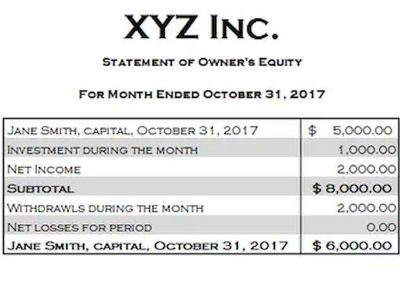
While these services come at a cost, they can maximize the accuracy and efficiency of vital financial management processes. Your business’s accounting needs might not require the in-depth expertise of a hired professional. You might also be watching your company’s list of expenses and wondering where to reduce spending. In either case, consider handling the accounting yourself or delegating this responsibility to one or a few of your current employees. Since bookkeeping is a more straightforward process than accounting, it is something that many people can (and do) opt to take care of themselves. As your business grows and you begin making higher profits, hiring staff and handling more transactions, however, it may make sense to outsource the details of bookkeeping to someone else.
Unlike bookkeepers, there are a range of different professional certifications that accountants may acquire. Generally, an accountant must have a bachelor’s degree in accounting or finance to qualify for the title. Bookkeeping is the process of keeping accounting vs bookkeeping records of the financial affairs of a business. Many small businesses don’t make the choice between bookkeepers vs. accountants and simply have both. The bookkeeper may use a cash flow software like Bill.com to manage all of a businesses vendor bills.
The function of bookkeeping
Intuit Inc. does not have any responsibility for updating or revising any information presented herein. Accordingly, the information provided should not be relied upon as a substitute for independent research. Intuit Inc. does not warrant that the material contained herein will continue to be accurate nor that it is completely free of errors when published. Those baby steps can help you manage your organization on a new and improved system.
- Accounting is the systematic process of recording, measuring and communicating information about the financial transaction taking place in a business.
- Both accounting and bookkeeping play an important financial role in business, there is a difference between the two.
- Accountants’ qualifications depend on their experience, licenses and certifications.
- These steps require a more in-depth understanding of finances, so an accountant will typically perform them.
While a bookkeeper will remain an important partner for strengthening that foundation of a company, when it comes to creating pathways for the future, you should look to an accountant. In this article, you will learn the differences between bookkeeping and accounting, as well as instances in which each member of your financial team is necessary. The overall best bookkeeping software includes Zoho Books, FreshBooks, Xero, and Intuit QuickBooks. But if you have the time to dedicate to updating your books regularly, doing your own bookkeeping may be feasible. Your general ledger should be up to date so that your bookkeeping software is able to provide functionality that you can navigate easily.
Join over 140,000 fellow entrepreneurs who receive expert advice for their small business finances
When most people think about the difference between bookkeeping and accounting, they are hard-pressed to nail the distinction between each process. While bookkeepers and accountants share common goals, they support your business in different stages of the financial cycle. Staying on top of accounting industry trends is essential to making sure your business’s practices and technologies are ahead of the curve. Keep reading — we showcase 38 crucial accounting stats to make sure you’re in the loop. The accountant maintains and compiles the records of a company’s daily transactions into financial statements such as the income statement, statement of cash flows and balance sheet. The financial statements help to assess the performance of a company by all stakeholders.

As technology has changed the way we all work, we have seen a shift in bookkeeping vs. accounting. Automations within accounting software have dramatically streamlined the bookkeeping function. This has freed bookkeepers from much of the traditional data-entry work, letting them step into more of an advisory role. Since bookkeepers often know their clients’ businesses in intimate detail, this shift makes intuitive sense.
Interrelation and Importance for Businesses
Start by reaching out to other business owners for recommendations, searching online for providers and checking out reviews on Google or Yelp. If you don’t feel comfortable with a freelancer, there are many firms that offer bookkeeping services as well. Bookkeeping tasks provide the records necessary to understand a business’s finances as well as recognize any monetary issues that may need to be addressed. Proper planning and scheduling is key since staying on top of records on a weekly or monthly basis will provide a clear overview of an organization’s financial health. Since most people consider bookkeeping and accounting to be interchangeable, there is often a lot of misconception about what each professional can provide. Here are a few key differences between what bookkeepers do vs. what accountants do.

If you’re new to business, you may be wondering about the importance of bookkeeping. Whether you outsource the work to a professional bookkeeper or do it yourself, you’ll be able to reap a variety of benefits. In light of the above discussion, it can be established that there is a usual overlapping between the roles of a bookkeeper and an accountant. Both bookkeeping and accounting are used interchangeably in the financial world, however, there is a notable difference between bookkeeping and accounting. Bookkeeping is a part of accounting whereas accounting itself is a wider concept.